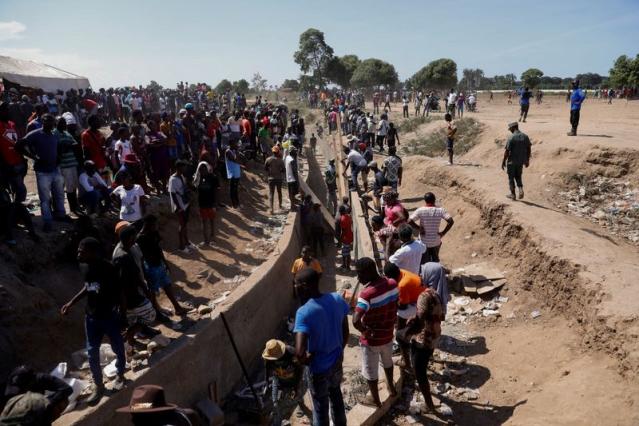(Reuters) – A United Nations human rights expert called on the Dominican Republic and Haiti to resume talks to reach a quick, peaceful end to a total border shutdown launched by Dominican authorities on Friday, citing humanitarian and trade impacts.
U.N. expert for Haiti William O’Neill said today the closure would impact jobs and businesses that depend on cross-border trade and have “dire” results on access to essential goods in Haiti, which is already facing a humanitarian crisis.
He called on the countries to seek international arbitration if needed.
“Directors of medical clinics in Haiti have told me that they will not be able to care for their patients if access to the Dominican Republic is cut off,” O’Neil said in a statement.
“Lives are at stake,” he added, noting that at least a quarter of food is imported through the border and calling on the Dominican Republic to allow the delivery of all humanitarian assistance and essential goods.
Dominican President Luis Abinader, who is seeking reelection in May 2024, announced the border shutdown last week, citing a canal being built on the Haitian side of a shared river that he says violates a 1929 treaty.
Haiti’s government has condemned the shutdown, which comes amid a worsening humanitarian crisis in the country driven by escalating gang warfare.
The United Nations has repeatedly raised concerns about forced deportations of Haitians from the Dominican Republic, including of children and pregnant women.
Dominican authorities said in a statement on Monday that water authority INDRHI had carried out an inspection of irrigation infrastructure in the border region near the canal and found no risk for local producers.
INDRHI is continuing studies for construction of a dam ordered by Abinader, it said. Abinader last week said he was planning to build two dams that could “significantly affect” Haiti if the treaty is not active.
In a national address late on Sunday, Abinader reaffirmed that the canal posed environmental risks and the measures would stay in place until its construction stopped definitively.

